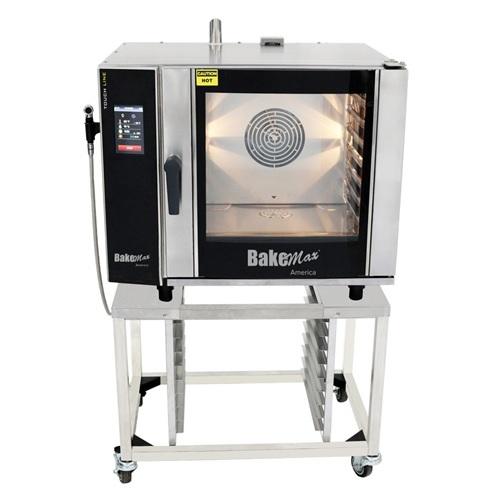386-260-5002
386-260-5002

Effectiveness in cleaning and optimizing is the key to running a profitable eatery. Believe it or not, restaurant kitchen appliances are routinely neglected by management teams until they stop being avoided.
However, the key to a smoothly operating kitchen is a preventative maintenance plan that attends to the needs of the appliances before they deny getting your food cooked in them. Restaurant equipment maintenance is the key to big savings. Your restaurant's success hinges on the quality and efficiency of the equipment you use. In the short term, you might be able to get away with not properly maintaining your equipment.
However, this will not only result in increased expenses but also create chances of less productivity, wasted resources, and lost revenues in the long run. Industry assessments show that establishments with standard operating procedures and regular maintenance schedules save more than half the average.
In order to construct a well-oiled (movable) machine and maximize output, commercial kitchens must function like clockwork, with round-the-clock cleaning and maintenance in their dining systems. Most of the work done in commercial kitchens relies on the equipment used there, making it the most important and valuable asset. There are a number of factors that can either decrease or lengthen the useful life of restaurant kitchen appliances, with consequences for productivity and quality.
Let us look at some of the most effective ways to keep your restaurant running without last-minute hiccups.
As a standard rule, keeping your commercial kitchen's appliances in good condition requires regular cleaning. Grease and grime can accumulate on dirty machinery and cause malfunctions and performance drops. Regular and thorough cleaning should be performed, with specific products and methods used for each piece of machinery.
It is important to keep an eye on the seals and hinges of your appliances, especially the fridge and oven. Overworking the equipment is a result of air or heat escaping from the device due to dirty or damaged gaskets. Using a dry towel and some soap and warm water every few months can keep any oil or debris at bay. If grease is somehow managing to find its way inside the gasket, it must be removed using a degreasing product and a nonabrasive sponge.
If the gasket shows signs of wear and tear, you should replace it in accordance with the instructions provided in the equipment handbook or have it done professionally. As a matter of fact, door jams can be caused by broken or loose hinges. Use the proper screwdriver (rust-free) to secure the screws. If the hinges break and need replacing, you should get ones made especially for your make and model.

Even though it is easily forgotten, the pristine condition of the vent cover and ducts is something that absolutely cannot be neglected. Cleaning the oil and debris that accumulate under the hood and scouring the ducts on a daily or weekly basis, depending on your preference and the amount of business, complies with health requirements and ensures that cleanliness and safety are maintained.
It is crucial to maintain the longevity of the restaurant kitchen appliances by replacing parts when they become worn or damaged, but with professional help. Worn or corroded parts might cause more harm and reduce the effectiveness of the system. It is essential to substitute parts immediately as they exhibit any signs of damage or wear, and one should only use components that have been approved by the manufacturer or an expert who is aware of the system and its parts.
In the event that there is a potential for a fire in your kitchen, the automated suppression system must be in a state of readiness to immediately go into action. It is therefore vital that this system undergo a comprehensive inspection at least every six months or so by a contractor who is competent to do the inspection.
Your commercial kitchen's appliances will likely have a longer lifespan if your team is properly taught to prevent damage to the equipment and maintain it. The employees need to be instructed in the correct way to operate and maintain each piece of machinery, as well as in the significance of performing routine cleaning and upkeep in every possible corner of your kitchen.
Another factor that contributes to restaurant equipment maintenance in commercial kitchens having a longer lifespan is good use, which comes with trained personnel. A significant influence on the effectiveness and longevity of a piece of machinery is the operator's familiarity with its correct use as well as his or her attention to seemingly insignificant but crucial maintenance details.
Installation is one of the most important factors that determines how long commercial kitchen equipment will last. When installing something, it is absolutely necessary to adhere to the guidelines provided by the manufacturer or even seek the assistance of a professional if the task is too difficult. These days, maintenance services are frequently available, and finding them is no big task.
Combination ovens require more upkeep. The most valuable quality of a combination oven is its adaptability. This appliance combines convection, steam, and combination cooking, enabling you to perform everything from baking to poaching in one convenient location. Because of this, performing periodic upkeep and cleaning on a combination oven is essential if you want it to last as long as possible.

As a matter of fact, since the water mode introduces liquid into the oven, substantial deposits of calcium and other minerals have the potential to accumulate on the generator of steam. Make sure that you remove the oven in accordance with the suggested time cycle provided by the manufacturer. Additionally, you ought to disinfect the intake fan once a week. The circulation of hot air around the simmering chamber is essential for convection cooking, and a clean intake fan helps maintain this circulation.